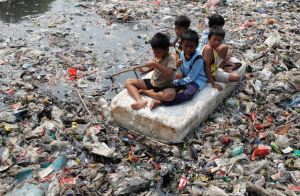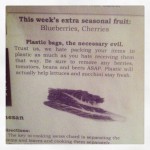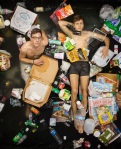Changing a habit is hard because you have to do something consistently. Every single time it is a choice between that thing that you should do, and the thing that you always do, that is easier or even automatic. Tracking a habit is very important because the mind constantly tries to trick you into slipping back into your old habits. However, tracking can be annoying. There are more and more impressive and easy to use good quality apps though, that really work to trick your brain. My top 3 apps for habit hacking:

This one is for concentration as well as saving me from sitting. Pomodoro is a timer based app that schedules you to work for 25 minutes straight, then take a 5 minute break. After 4 cycles, you take a longer break. I use this in conjunction with Self Control, another timer app that blocks all procrastination sites for however long I choose and cannot be undone until the timer is out. It’s great because a 25 minute work interval is perfect for getting over procrastination. The hardest part about procrastination is to start on a task. It is often much easier to keep working once you get going. It is quite easy for me to convince myself that I only have to work on that task for 25 minutes, and if I really can’t get into it, I will move on to something else.
My only problem is that If I do get into a work flow I don’t notice the alarm. My brain just clicks through and keeps going so I do not get the benefit of getting up to stretch for 5 minutes every half hour like you’re supposed to and I REALLY REALLY NEED TO BECAUSE SITTING IS KILLING ME.

It’s a very basic concept with a decently easy interface. You set up a habit you want to track, phrased as a yes or no question. Did you exercise today? Did you call your mom today? and then you set up how often you want the app to ask you about it (e.g. daily, weekly, monthly basis). Then it colour-codes the days on a monthly calendar and tallies up yeses and nos. I started using this one for dry January to count how many days I did not drink (25!). Since then I have successfully used to change my waking up and exercise habits.

While Pomodoro is saving my productivity, Stop, Breathe & Think has been saving my sanity. Seriously, I love this app. I tell everyone about this app. I would shout off the rooftops about this app. Whoever designed this app did a very good job. This app asks you to check in mentally and physically, and suggests short guided meditations based on your mood. As a moody person, I was scared to even know at first. It made me nervous to record my emotions every time I meditated because I realized I didn’t want to know just how much my mood was fluctuating. But it was actually really eye-opening. I realized that I am frequently in a positive mood and experience good level of mental and physical wellbeing. And it opened my eyes to the fact that I choose anxiety every day, on top of all my good emotions. I thought, how weird! Why am I carrying that around? Life is good, and I am happy. This was the best habit to add to my arsenal and it takes about 5 minutes a day!
Do you have an app that helped you develop better life habits? Have you tried any of these? Please share with me in the comments.







 NPR has an excellent
NPR has an excellent 
